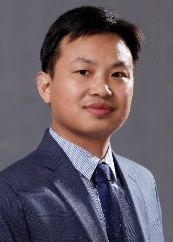
|
E-mail: jinfang_zhang@whu.edu.cn Website:
|
Biography
2008 - 2012 Ph.D., Department of Biochemistry and Molecular Biology, Peking University, Beijing, China
2012 - 2013 Assistant Investigator, Institute of Microbiology, Chinese Academy of Sciences, Beijing, China
2013 - 2015 Postdoctoral Research Fellow, Department of Pathology, Beth Israel Deaconess Medical Center, Harvard Medical School, Boston, MA
2015 - 2018 Instructor, Department of Pathology, Beth Israel Deaconess Medical Center, Harvard Medical School, Boston, MA
2019 - Present Professor, Medical Research Institute, Wuhan University, Wuhan, China
2022 - Present PI, Taikang Center for Life and Medical Sciences, Wuhan University, Wuhan, China
Research
Currently, immune therapies targeting the PD-1/PD-L1 pathway are widely employed in clinical oncology. While these treatments result in complete remission for specific cancer patients, a considerable proportion, around 70%, do not respond as expected. Therefore, the search for new strategies in cancer immunotherapy have become hot topics and cutting-edge issues in cancer research. Our research has primarily focused on two aspects:
1. Investigating the regulatory mechanisms of well-established immune checkpoints, including PD-1, PD-L1, and CD47, with the goal of formulating novel combination approaches for cancer immunotherapy.
Leveraging cutting-edge technologies such as CRISPR-Cas9, multi-omics analysis, and preclinical animal tumor models to identify emerging immune regulatory molecules responsible for enabling cancer immune evasion. Subsequently, we dedicate our efforts to the development of next-generation therapeutic antibodies and inhibitors that target these molecules.
Representative Publications
1)Xiao X#, Shi J#, He C#, Bu X, Sun Y, Gao M, Xiang B, Xiong W, Dai P, Mao Q, Xing X, Yao Y, Yu H, Xu G, Li S, Ren Y, Chen B, Jiang C, Meng G, Lee YR, Wei W, Freeman GJ, Xie C*, Zhang J*. ERK and USP5 govern PD-1 homeostasis via deubiquitination to modulate tumor immunotherapy. Nature Communications. 2023 May 19;14(1):2859.
2)Xiong W#, Gao X#, Zhang T, Jiang B, Hu M-M, Bu X, Gao Y, Zhang L-Z, Xiao B-L, He C, Sun Y, Li H, Shi J, Xiao X, Xiang B, Xie C, Chen G, Zhang H, Wei W, Freeman GJ, Shu H-B, Wang H*, Zhang J*. USP8 inhibition reshapes an inflamed tumor microenvironment that potentiates the immunotherapy. Nature Communications. 2022 Mar 31;13(1):1700.
3)Zhang J#, Bu X#, Wang H#, Zhu Y, Geng Y, Nihira NT, Tan Y, Ci Y, Wu F, Dai X, Guo J, Huang YH, Fan C, Ren S, Sun Y, Freeman GJ*, Sicinski P*, Wei W*. Cyclin D-CDK4 kinase destabilizes PD-L1 via Cullin 3-SPOP to control cancer immune surveillance. Nature. 2018 Jan 4; 553(7686): 91-95.
4)Zhang J#, Lee YR#, Dang F#, Gan W, Menon AV, Katon JM, Hsu CH, Asara JM, Tibarewal P, Leslie NR, Shi Y, Pandolfi PP*, Wei W*. PTEN methylation by NSD2 controls cellular sensitivity to DNA damage. Cancer Discovery. 2019 Sep; 9(9): 1306-1323.
5) Zhang J#, Chen M#, Zhu Y#, Dai X, Ren J, Ren S, Shulga YV, Beca F, Gan W, Wu F, Lin YM, DeCaprio JA, Beck AH, Lu KP, Huang J, Zhao C, Sun Y, Gao X*, Pandolfi PP*, Wei W*. SPOP promotes Nanog destruction to suppress stem cell traits and prostate cancer progression. Developmental Cell. 2019 Feb 11; 48(3): 329-344.
6) Zhang J#, Xu K#, Liu P, Geng Y, Wang B, Gan W, Guo J, Wu F, Chin YR, Berrios C, Lien EC, Toker A, DeCaprio JA, Sicinski P, Wei W*. Inhibition of Rb phosphorylation leads to mTORC2-mediated activation of Akt. Molecular Cell. 2016 Jun 16; 62(6): 929-942.